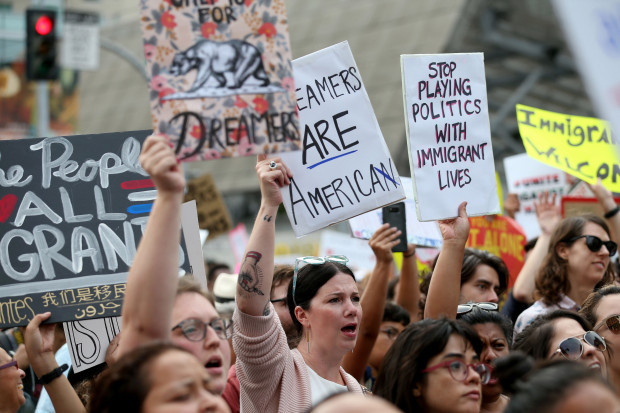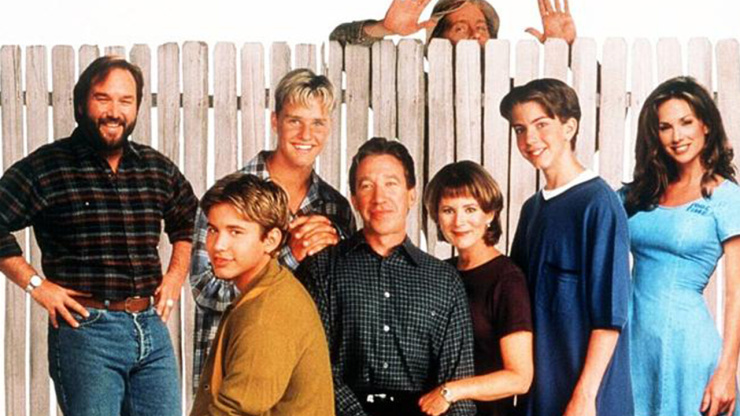
Jill Abramson, a former executive editor of the New York Times, has a few things to say about the paper’s coverage of President Trump. In a Columbia Journalism Review piece, she warns that the paper needs to be careful not to “create the appearance of a pile-on… that needlessly inflame Trump loyalists.”
“Precisely because of its influence, the Times’s tone and sense of proportion in covering the president must be pitch perfect,” Abramson says. She notes statements by the paper’s current Executive Editor Dean Baquet, “Our role is not to be the opposition to Donald Trump,” and by David Sanger, a Washington correspondent for the Times, that it would be “the biggest single mistake . . . to let ourselves become the resistance to the government.”
To put it mildly, I’m far from a Trump loyalist, but I’ve seen the Times’ blatant bias in its coverage of Trump’s recent package of immigration proposals.
“White House Makes Hard-Line Demands for Any ‘Dreamers’ Deal”, the NY Times screamed on Oct. 8.

The paper went on to say Trump’s “demands” threaten a bipartisan solution.
“WASHINGTON — The White House on Sunday delivered to Congress a long list of hard-line immigration measures that President Trump is demanding in exchange for any deal to protect the young undocumented immigrants known as Dreamers, imperiling a fledgling bipartisan push to reach a legislative solution.”
The Washington Post blared on the same day:
“Trump administration releases hard-line immigration principles, threatening deal on ‘dreamers’ “
RealClear Politics fell in line, too. “ “An array of hard-line immigration priorities the White House outlined to Congress Sunday were quickly rejected by Democrats as complete non-starters, jeopardizing the chances of striking a deal to shield hundreds of thousands of young undocumented immigrants.
The Boston Globe, the L.A. Times, USA Today and multiple other news outlets piled on with the same “hard-line” cliché.
Wait a minute. Why are Trump’s proposals “hard-line” and not the Democrats demands?
A little history is in order.
When President Obama announced his Deferred Action for Childhood Arrivals (DACA) program in the Rose Garden on June 15, 2012, it hardly reflected a middle-of-the-road consensus. If anything, it represented hard-line hard-left thinking, but the media didn’t describe it that way.
This despite the fact Republicans vigorously denounced the move as an abuse of executive power. The action is “a politically-motivated power grab that does nothing to further the debate but instead adds additional confusion and uncertainty to our broken immigration system,” said Sen. John McCain (R-AZ)
And when Obama said in 2014 that he intended to expand DACA so more people would be eligible, 26 states with Republican governors went to court to stop him. Resistance broke out as well when Obama took executive action to grant deferred action status to illegal immigrants who had lived in the United States since 2010 and had children who were either American citizens or lawful permanent residents.
In both cases, courts blocked Obama’s actions and in June 2017 the Trump Administration officially rescinded the Deferred Action for Parents of Americans order.
In other words, Obama’s actions were pretty hard-line. But the media didn’t describe them that way.
Trump’s current package of immigration proposals includes a dozen proposals grouped into three broad areas — border security, interior enforcement and merit-based immigration. Key elements are:
- Build a southern border wall and close legal loopholes that enable illegal immigration and swell the court backlog.
- Enforce our immigration laws and return visa overstays.
- Merit-based immigration system. Establish reforms that protect American workers and promote financial success.
The Democrat’s reaction? Immediate, unqualified, harsh, hard-line dead-on-arrival rejection of Trump’s plan. “This list goes so far beyond what is reasonable,” said Senate Minority Leader Chuck Schumer and House Minority Leader Nancy Pelosi. “This proposal fails to represent any attempt at compromise.”
Why do the media label Trump’s proposals “hard-line”, but not apply the negative appellation to the Democrat’s outright rejection of them and insistence on their positions? Why aren’t the opening positions of both sides simply described as starting points for negotiation? Then we can decide what we think of them.
That would be more responsible than the major media becoming the resistance.
Advertisements Share this:




